Chad
At 25 year old, Rimtebaye has only known one President, Idriss Déby. He wants things to change but no longer believes in it. Because the Chadian president, who has been in power for 30 years, is sure of a sixth term in Sunday's presidential election.
Like many of his peers disillusioned by the misery that afflicts the third least developed country in the world according to the UN, Rimtebaye spends his days venting his desire for "change" on social networks.
Bedridden in a small brick house in the Gassi neighborhood of the capital, N'Djamena, Rimtebaye survives in extreme poverty. In 2019, his life was turned upside down, when a road accident left him paralyzed.
The 25-year old receives no assistance and his immediate family struggles to pay for his care. His mother receives no pension and his sister is forced to ride a motorcycle cab for barely 2,500 CFA francs a day, that's less than 4 euros.
For Rimtebaye, it is clear that: "Under the reign of President Idriss Déby, Chad is behind at all levels- political, economic, social," he laments.
And also in education: "Between the age of 4 and 18, Chadian children spend an average of only 5 years in school," according to the World Bank.
Aimé Aissadji Bona, 29, is not one of President Déby's supporters who flock to his meetings. He runs a platform to help young graduates find a job in the civil service.
"Even to get a simple internship, it's the principle of co-optation, you need a friend or a well-placed relative," he laments.
On Sunday, Aimé will not vote and will instead go to protest.
"On April 11, as a conscious citizen, I will not be voting because it is an election already been decided in advance. We already know the results, it's pure theatre, to liven up the political scene a bit. There is no opposition in these elections, it is a single party which has fabricated an opposition to accompany it", the 29-year old said.
"The money of the campaign, if only it could be used to make pipes, taps," the young man added. A large part of the capital, like almost the rest of the country, has no running water.
A graduate in biomedical sciences, the 29-year old is also looking for a job that matches his studies. He dreams to work in a laboratory, for example. For now, he is a drug deliveryman.
"When the electricity comes back to the neighborhood, the children shout with joy. Frankly, it hurts my heart," he says.
Power cuts are frequent, sometimes lasting several days, as in most parts of N'Djamena. The streets of Gassi are not paved like many others. During the rainy season, it is difficult for Rimtebaye's family to go out by car in a city that is frequently flooded.
Marches for change
For several months, President Déby's government, which authorizes and even encourages a certain "moderate" opposition, or "manipulated" according to its detractors, has been violently repressing the more critical opposition which calls for "peaceful marches for change" every Saturday.
But the "peaceful marches" hardly draws the numbers. The divisions of the opposition, which has failed to push a single candidate, and the security forces that violently disperse the slightest gathering dissuade even the most reckless.
Aimé also points to the authoritarian drift of a "regime of terror". "When you see a policeman at night, you are afraid," he says.
On Thursday, the NGO Human Rights Watch accused Chadian security forces of carrying out a "relentless crackdown" on opponents in the run-up to the presidential election. When questioned by the human rights body, Chadian Justice Minister Djimet Arabi said the security forces had acted with "professionalism''.
Of the 16 candidates who had initially signaled a desire to contest Déby at the polls, 7 have been invalidated and 3 have giving up. They are calling for a boycott of the election in the face of the repression, even though their names have been retained on the ballots.
This leaves 6 who will face Déby on Sunday, with no real political base or virtually unknown, according to the radical opposition and political scientists.
Chad, although an oil producer since 2003, is ranked 187th out of 189 on the United Nations Development Program (UNDP) Human Development Index (HDI) for 2020.
In 2018, 42% of the population lived below the poverty line, the World Bank said.




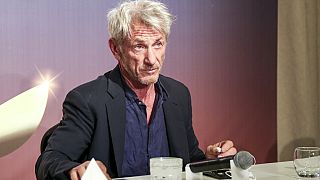
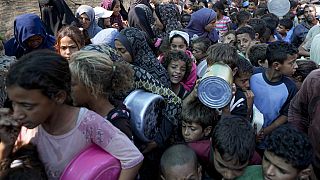
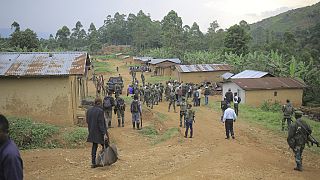
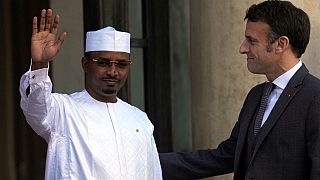
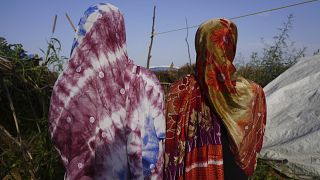
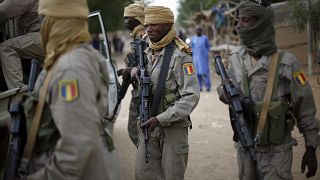
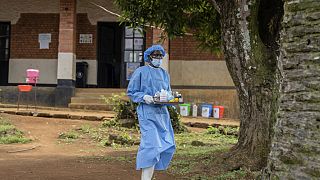
01:04
Namibia elects first female president amid controversy
01:04
Namibia Election: Will SWAPO’s Nandi-Ndaitwah Make History?
01:01
Namibia opposition candidate furious after voting is prolonged for days
01:05
Ivory Coast: Laurent Gbagbo's ex-wife to run for president
00:59
Namibia waits for results of fiercely contested election
02:10
Ruling party candidate Nandi-Ndaitwah favorite as Namibia votes